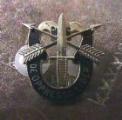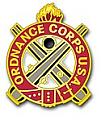
Originally Posted by
Bob's World

No community has a corner on getting this right or wrong.
I have seared in my brain a meeting between an Egyptian Division Commander (a tremendous gentleman and war hero, who as a young company commander had led the assault across the Suez and employed his Sagger missile teams quite effectively against the Israeli defenders...). His Division had just recently been rated as the best in the Egyptian Army, and his was the first heavy unit to arrive in Saudi Arabia to form the Arab Coalition.
Sitting in front of his huge desk, in a huge and colorful Saudi Hag tent covered with Arabic motifs, carpets covering the sandy floor, incense burning, exotic music playing softly in the background, oceans of tea flowing. The conversation went on for a long time, as we meandered through the requisite pleasantries of family based small talk, all geared toward developing the most critical of elements: trust. I remember being amazed that this great man would have such a conversation with a little Captain like me, when certainly no American Division Commander would do the same. I also remember my boss sitting next to me, who had just arrived in country and I had just met a few days earlier growing visibly more impatient with each passing minute.
Abruptly, my boss interrupted the General and boldly proclaimed: "I'm Major ___ ________, US Army Special Forces, and I'm here to train your Division!"
You could have heard a pin drop. You certainly could see the mask drop over the General's face. "I see," he replied calmly.
Major _______ then pushed a page of tasks that he had worked up in his room by himself back at KKMC across the General's desk. "These are the tasks that I am prepared to train your Division on!"
"Very well, then I believe our business here is concluded." stated the General, as he had his men escort us back out into the blazing sunlight to our vehicle.
As we drove away, Major _______ at the wheel (he loved that little Toyota), a proud smirk pasted on his face. "Damn, I thought he would never shut up, but I took charge of the situation and got the job accomplished."
"Sir, I think you insulted the General..." "Ridiculous!" interjected Major_______. "When you've been around as long as I have, you'll understand that you need to take charge of these situations or you'll never get anything done."
"Yes sir." and I (showing rare wisdom) remained silent for the long ride back to KKMC.
A week later we returned and had a follow-on meeting with the General. It was short and perfunctory. He handed us back the Major's list and stated "these are the tasks that I would like you to train my men on. I will have each of my Brigade Commander's provide ____men beginning next week as you have suggested."
As we walked over to where we were setting up our own tents, the Major proclaimed proudly "I nailed it! He didn't change a single task; I predicted exactly what he needed."
"Sir, (forgetting my earlier wisdom) he's just being polite. He knows the coalition is important, and that he needs the support of the US. He believes you want to train him on these tasks, so if that is the price of achieving that support he will provide the men and submit to what you have suggested...”
"You don't get it, do you Captain Jones."
"No sir, I guess I don't."







 , that the core "skill" is the ability to a) focus communications on the correct sensory channel / learnbing style for your student, and b) knwoing as much as you can about the topic while being extremely open to being wrong.
, that the core "skill" is the ability to a) focus communications on the correct sensory channel / learnbing style for your student, and b) knwoing as much as you can about the topic while being extremely open to being wrong. .
.
 ) block missing; Five blocks are cool but I think the third one might be shown as a hopefully existing and embedded set of skills that may need slight -- and only slight, very slight -- remodeling to be move on to the fourth block and be effective as an advisor.
) block missing; Five blocks are cool but I think the third one might be shown as a hopefully existing and embedded set of skills that may need slight -- and only slight, very slight -- remodeling to be move on to the fourth block and be effective as an advisor.
 ! Back to "ontology" in the title for you....
! Back to "ontology" in the title for you.... 

 ! I suspect that a large part of the problem running around here is that a lot of people don't get sent home for similar actions.
! I suspect that a large part of the problem running around here is that a lot of people don't get sent home for similar actions. . In it, one of the points he made was that lazyness (aka Sloth) was a Cardinal Virtue (from an evolutionary standpoint) if (and only if) it did not lead to punishments that exceeded the rewards to be garnered.
. In it, one of the points he made was that lazyness (aka Sloth) was a Cardinal Virtue (from an evolutionary standpoint) if (and only if) it did not lead to punishments that exceeded the rewards to be garnered.



Bookmarks